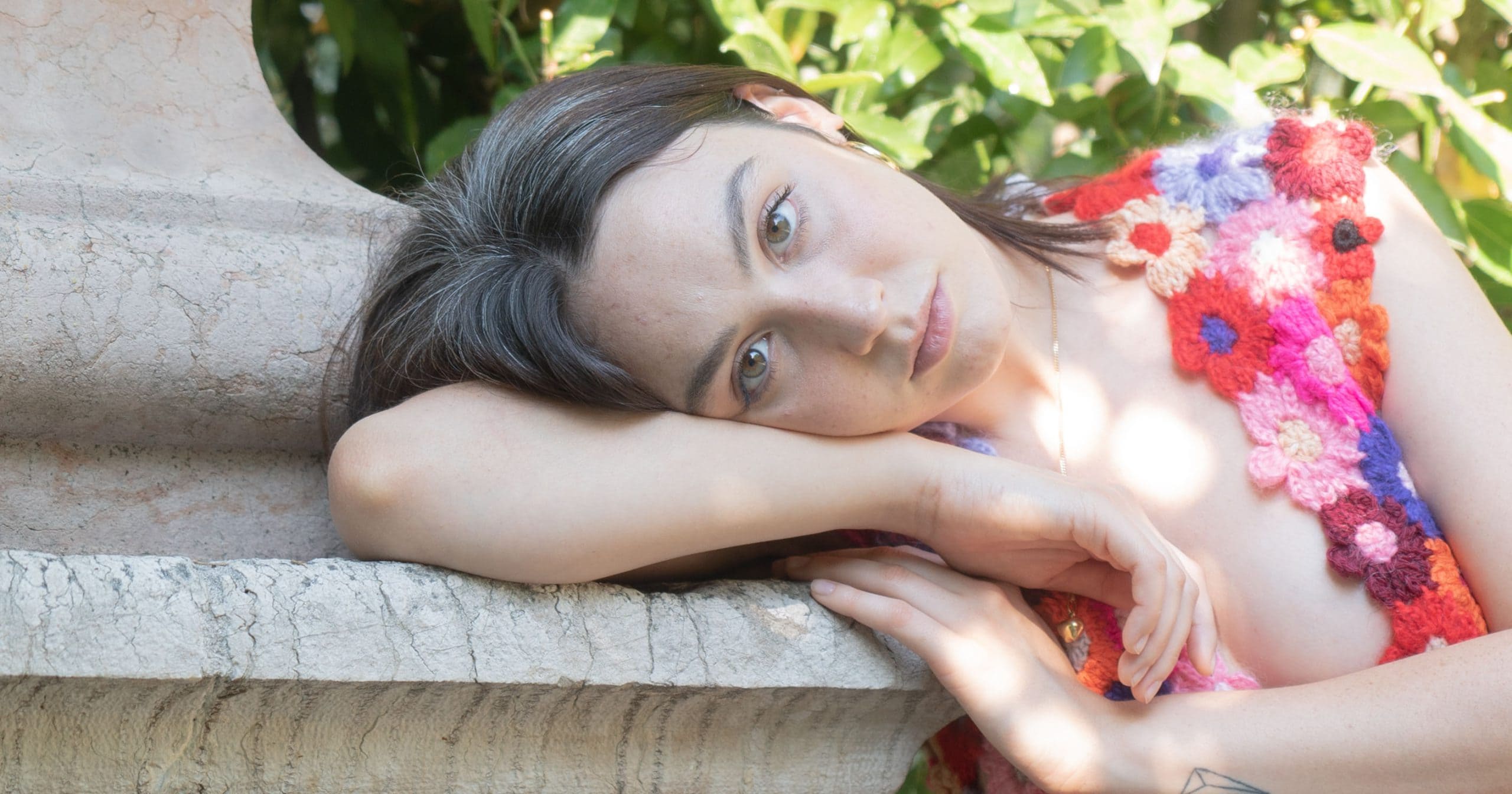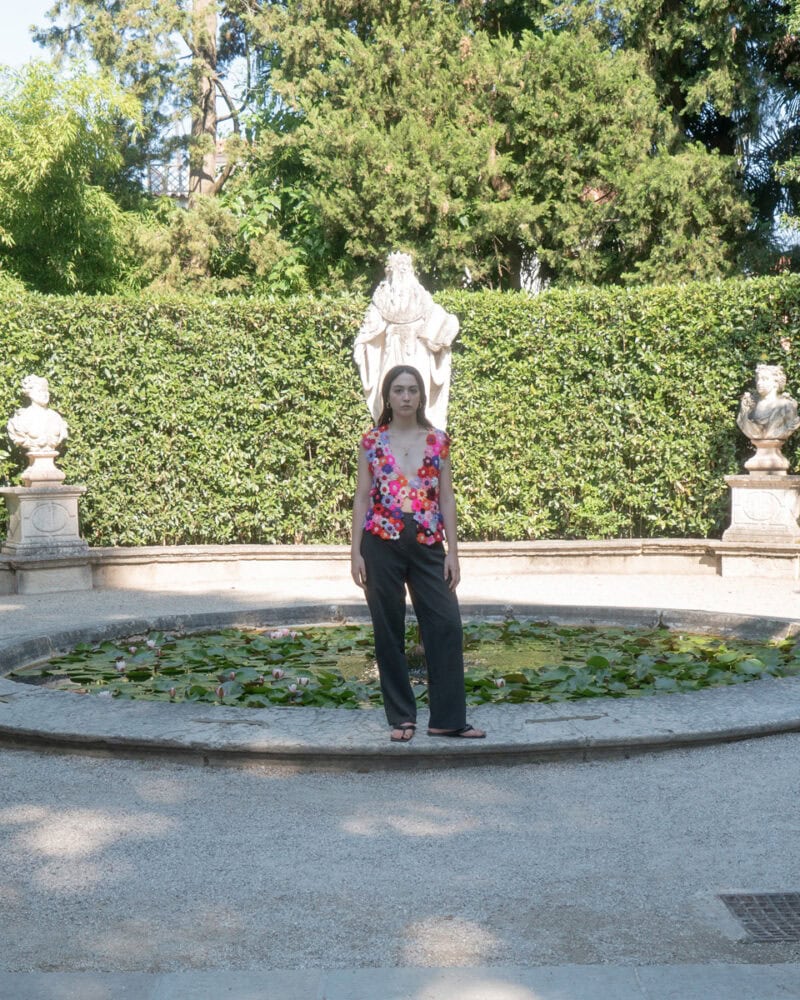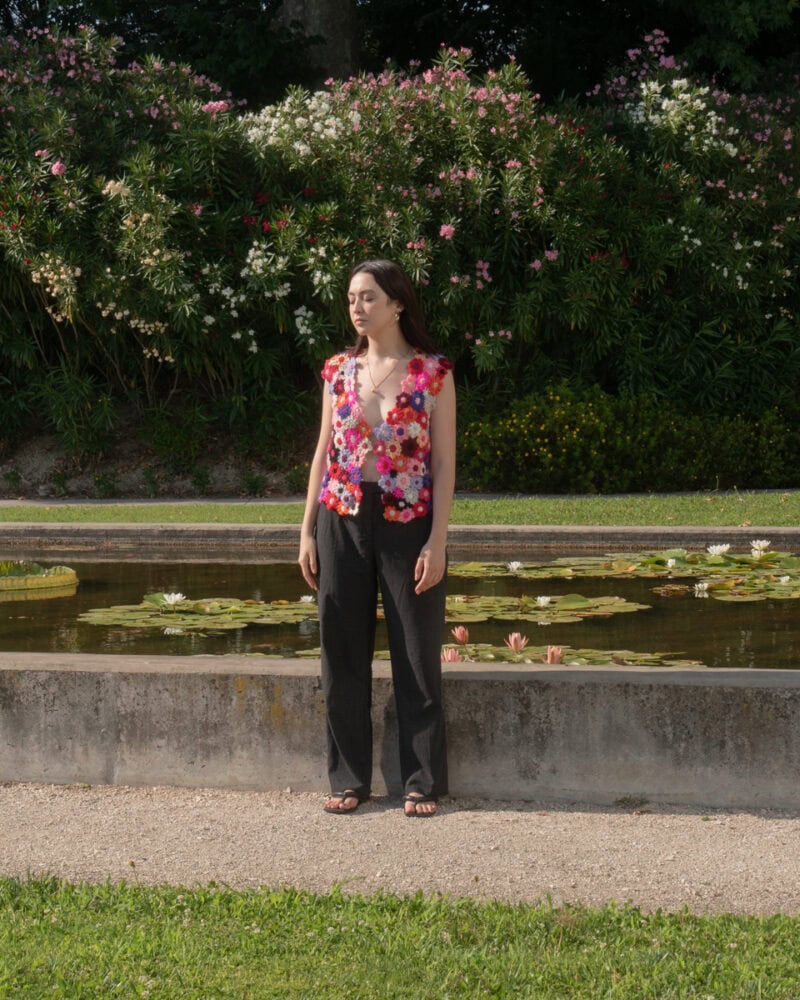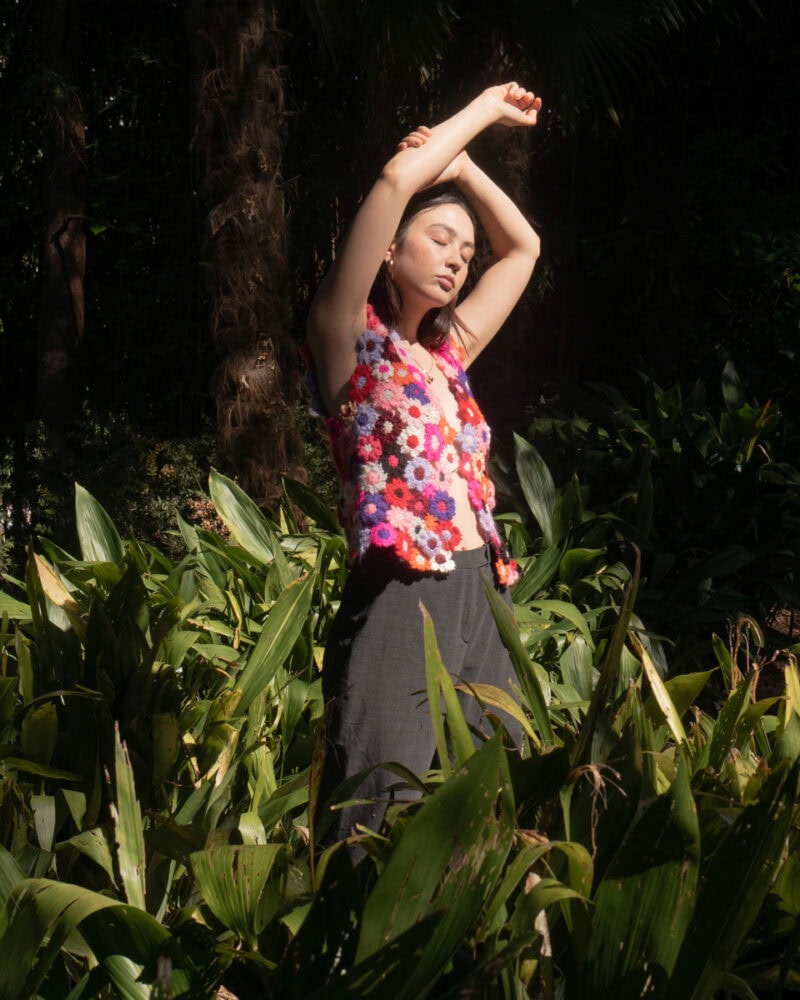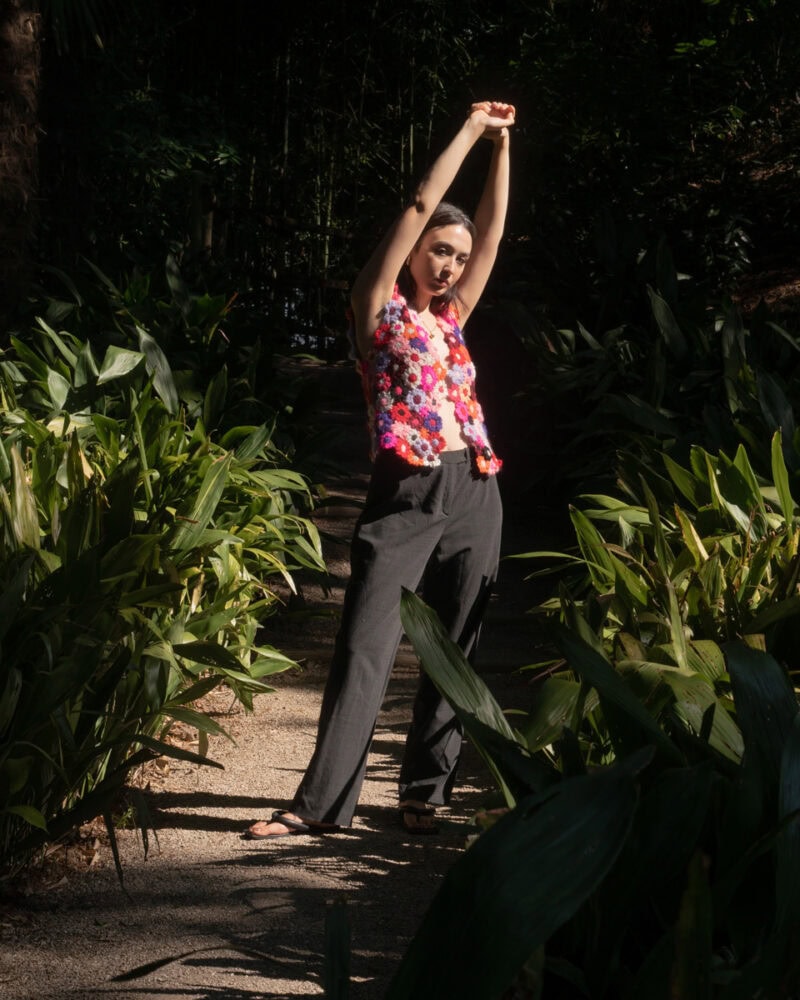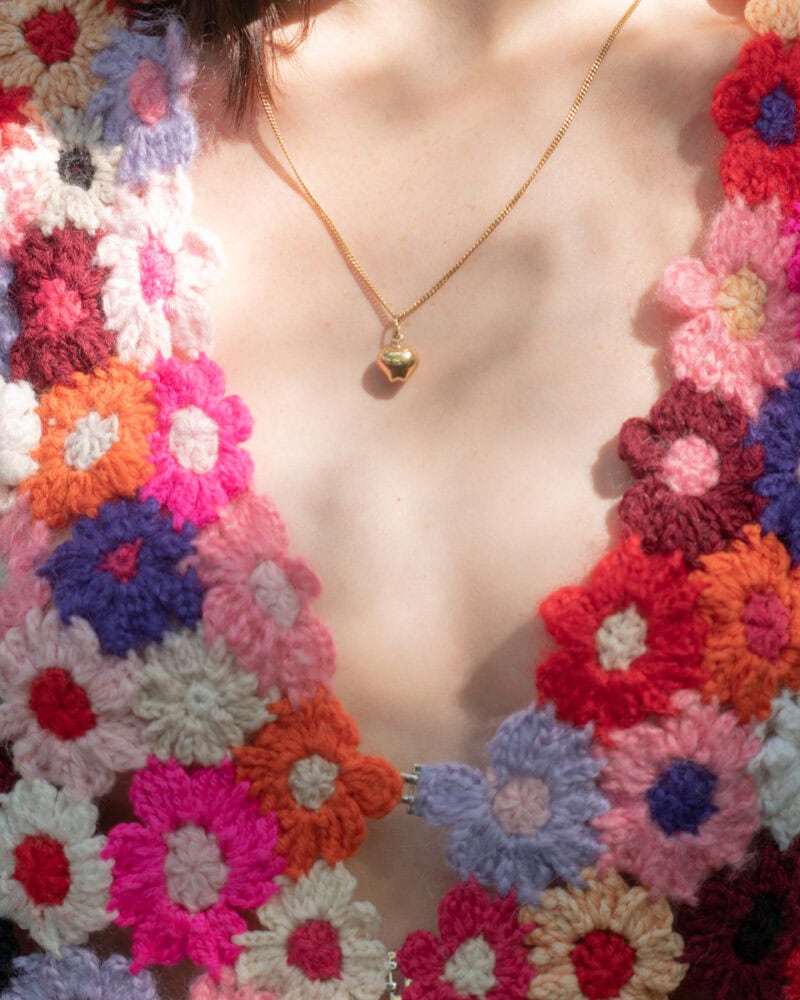How important is our body in our daily routine, in the choices we make, and in how we define our role? What function, meaning, or simply, what sort of feeling emerges from the shape taken by the contents of our skin? And how much does that contribute to building the person we become? Imposed beauty standards have direct consequences: comparison, certain sensations, and the channelling of daily intentions. But just as there is no such thing as normality, ideas should be replaced by personal bodily sensations that we can perceive and develop to make them stronger. Marika Zaramella, known as Leitalienne on Instagram, is a make-up artist & beauty creative director who has realised how crucial knowing one’s own skin is for emancipation. She plays on the potential of being natural and doesn’t hide her imperfections. She invites us to get to know them, identifying the core of a problem that still plagues us but that we can tackle as a way to feel good about showing ourselves the way we are, instead of feeling like heroes.
Hello Marika, your Instagram name is Leitalienne and one of the brands you work for is Espressoh. Can you tell us more about this Italian influence and what it is that you identify with?
I’d never actually thought about the “Italian” connection between my Instagram name and Espressoh. I identify with the brand’s fresh and direct communication, which is never forced and has been developed around a concept of simplicity. I find it very inclusive and I like that it addresses various issues around body positivity, both on Instagram and Oh Bar (the Espressoh blog).
I really like the variety of your content and your self-taught approach. I see your content as a tangible translation of intimate thoughts and feelings that allow you to refine different techniques as opposed to just repeating them. Which principles have you developed by working with your body?
I have always believed that there are no rules in make-up, I like taking inspiration from the person I have in front of me, their facial features, and their character. I always like experimenting with new techniques and styles, especially using objects that weren’t designed for make-up. I think my best work has been the result of improvising and experimenting.
If we think of the body and skin as an envelope or container of the soul, what do you think the relationship is between the exterior and interior when it comes to shaping one’s identity?
I think there are two things that drive creativity: one is our interior world and one is inevitably what is external to us. External stimuli are fundamental, especially when you manage to shape them into something personal, when they communicate with the inner you. Everything should be filtered through your own individuality though, without letting other people override you. It is crucial to start from a dimension that is both introspective and tangible in the strictest meaning of the term. Caring for your body and skin is a sort of ritual, taking care of your skin means taking care of yourself (in the most profound sense). For me personally, it is a moment of pleasure and wellbeing that mentally prepares me to face almost anything.
Your aesthetic codes go hand in hand with self-care. It feels like your approach eliminates imperfections, in a deeper sense. What inspired you to move in this direction? How did your journey develop and how did you work on the way people perceive you? Are some people more receptive to your work than others?
I have worked a lot on getting to know myself through my work and I think that it would be impossible to communicate everything behind my approach. What people see will inevitably vary depending on the spectator, we see everything from the perspective of our own background. I have always had a bit of a contentious relationship with imperfections: I wanted to be rid of them, they distressed me both in my work and my personal life. Then I realised that they could actually be a point of strength, so I stopped fighting them. I stopped covering up my spots and started to look at myself (both inside and out) with a more authentic gaze, without trying to filter what I saw through what I wanted to see. I am still a fan of a skincare routine with a million steps and hours spent in the bathroom spoiling myself with face masks and aromatherapy though.
The term body positivity is used a lot nowadays and there are many diverse initiatives to ensure that it becomes more prevalent in our daily lives. While very important, sometimes it can feel a little confused; there is a risk of it being exploited as opposed to being used for emancipation. On the contrary to the many reassurances we receive from on high, perhaps simply loving your body isn’t enough to end the discrimination, body-shaming, and microaggressions that stem from centuries of prohibitive metaphors.
I totally agree, it isn’t enough to love oneself. I worked on this theme in a project called Corpo Consapevole (Aware Body) where I documented my body every day for a year. Throughout this time, I noticed the poses I was doing and the photos that I would select and realised that I was unconsciously trying to be liked by other people rather than myself. Being aware of one’s body doesn’t mean simply not comparing ourselves to other people – or to beauty canons that don’t represent us and that we could never aspire to – but understanding the sexist and patriarchal conditioning that our body is subject to.
It goes without saying that often we don’t feel happy with ourselves and find ourselves fighting a sort of battle without a clearly defined enemy, nor the tools to defend ourselves. Despite this, we have made significant steps forward in breaking down prejudices and liberating ourselves from imposed aesthetic canons in the beauty world, although it’s taking a little longer in Italy. What used to be called an imperfection is now seen as individual beauty. It feels like Espressoh is taking this direction and avoids targeting insecurities to sell more. Can you tell us a bit about this? What are the brand’s strengths?
Espressoh has always represented the beauty of simplicity and I believe that truly reflects the values of founder Chiara Cascella. My first impression of Chiara was a strong, decisive, and confident woman and we immediately struck up a good working relationship. We like to be spontaneous when communicating these values on social media, especially because the brand is run by women who truly believe in them. You don’t need to shout about being inclusive, especially since you can always tell when it’s forced (and insincere). I have spoken on various occasions, including via my profile, about the pressure I have felt from brands who chose to work with me to show they were inclusive and then wanted to film my skincare routing with me wearing foundation. Nothing like that has ever happened with Chiara, we have always wanted real and truthful images, we never touch up pores or use Photoshop. So much so that our latest campaign for the launch of the new lipsticks was shot on smartphones by models during the quarantine. I am very proud to work in an honest environment that I feel is completely in line with my ideals.
Lately, and especially on social media, we see a lot of confident women posting new images as a way of self-determination and to affirm that all bodies are valid and that women don’t exist purely to attract men. How do you see the role of social media in this sense? And what about the images themselves? Do you think this approach tackles the heart of the problem by driving emancipation?
It’s a very delicate topic and I think, like everything, it has its pros and cons. Every woman should do whatever she wants with her body, using it as a means to combat centuries of denial of the female form (and emotion) is by no means wrong, even if you are continuing to use it as an object. I think it’s about how you go about it.
So what should somebody do if they don’t feel comfortable with their body?
I think that the answer is always self-analysis. You’ve got to try and go deep enough to understand why you don’t feel comfortable, first of all. I personally found it very helpful to photograph myself in different situations, at different weights and in different poses. I also found it helpful to stop wearing make-up. Social media can help if used with a certain awareness, following the right people can make a difference. Following someone who looks like us and who we respect as a model can make the journey easier – I’m not saying we necessarily have to imitate or take inspiration from another person but it’s a mental process that works for a lot of people, so better to be inspired by someone realistic and positive rather than someone who will just fuel your insecurities.
Once you’re on your journey, how can you contribute to social and political change? How do you work on inclusion?
You can contribute to inclusion by showing the real you every day, and speaking about normal things with no taboo, no fear, and no shame. Everyone has to take their own personal approach.
When it comes to acceptance and self-care, what changes do you think we will see in the next 10 years?
I think that fashion will shift towards reinforcing one’s own identity instead of pushing trends and new products. And the same for beauty: people will focus far more on skincare than on make-up, which will become a form of art and expression rather than a means to transform ourselves and hide our insecurities.
Credits:
Words by Stefania Zanetti
Photography by Greta Langianni
Art direction by Isabella Petricca
Starring Marika Zaramella
